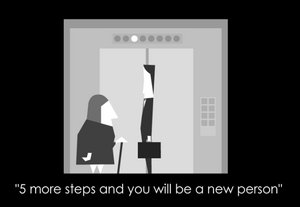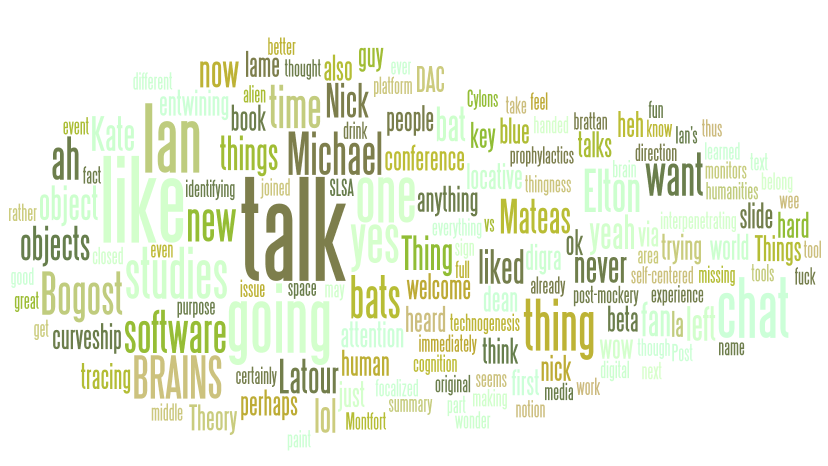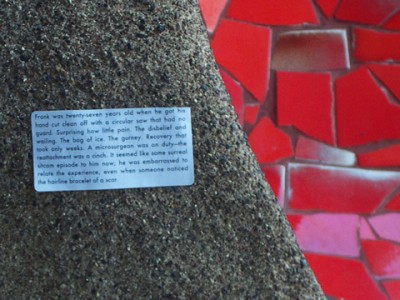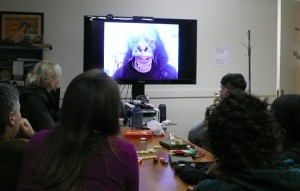A Beautiful Game to Start Your 2010
 Molleindustria has recently released an excellent short game with the music of Jesse Stiles. In Every Day the Same Dream, you play a man who awakens (continually) to your alarm going off, your clothes waiting to be put on, your television that cannot be watched, your wife who cannot be kissed good morning, traffic, and a seemingly endless cubicle farm where you work. A crone figure in the elevator suggests that you can break away from this routine, somewow. The music hits just the right point between the humdrum repetition of the workday and the idea of an alternative to these. The almost entirely grayscale game doesn’t write a prescription for the player’s happiness, and some of the steps are much sillier than others. Nevertheless, the game hints at how people can explore the everyday and escape the oppression of the ordinary. That’s not bad for six days of game development work and for a few minutes of your time.
Molleindustria has recently released an excellent short game with the music of Jesse Stiles. In Every Day the Same Dream, you play a man who awakens (continually) to your alarm going off, your clothes waiting to be put on, your television that cannot be watched, your wife who cannot be kissed good morning, traffic, and a seemingly endless cubicle farm where you work. A crone figure in the elevator suggests that you can break away from this routine, somewow. The music hits just the right point between the humdrum repetition of the workday and the idea of an alternative to these. The almost entirely grayscale game doesn’t write a prescription for the player’s happiness, and some of the steps are much sillier than others. Nevertheless, the game hints at how people can explore the everyday and escape the oppression of the ordinary. That’s not bad for six days of game development work and for a few minutes of your time.






 Nick Montfort and I are working with a designer to develop a coffee-table photo book version of
Nick Montfort and I are working with a designer to develop a coffee-table photo book version of 
